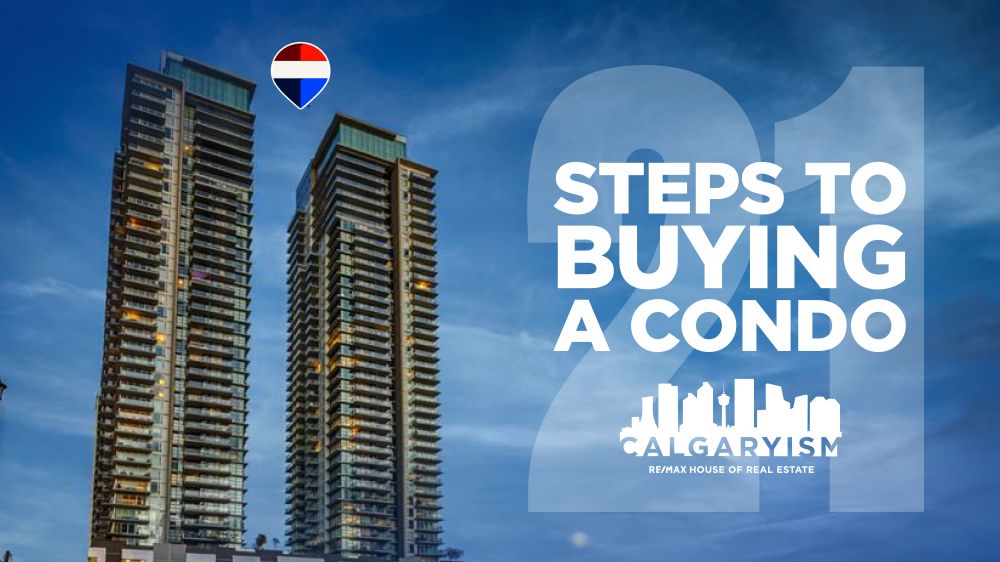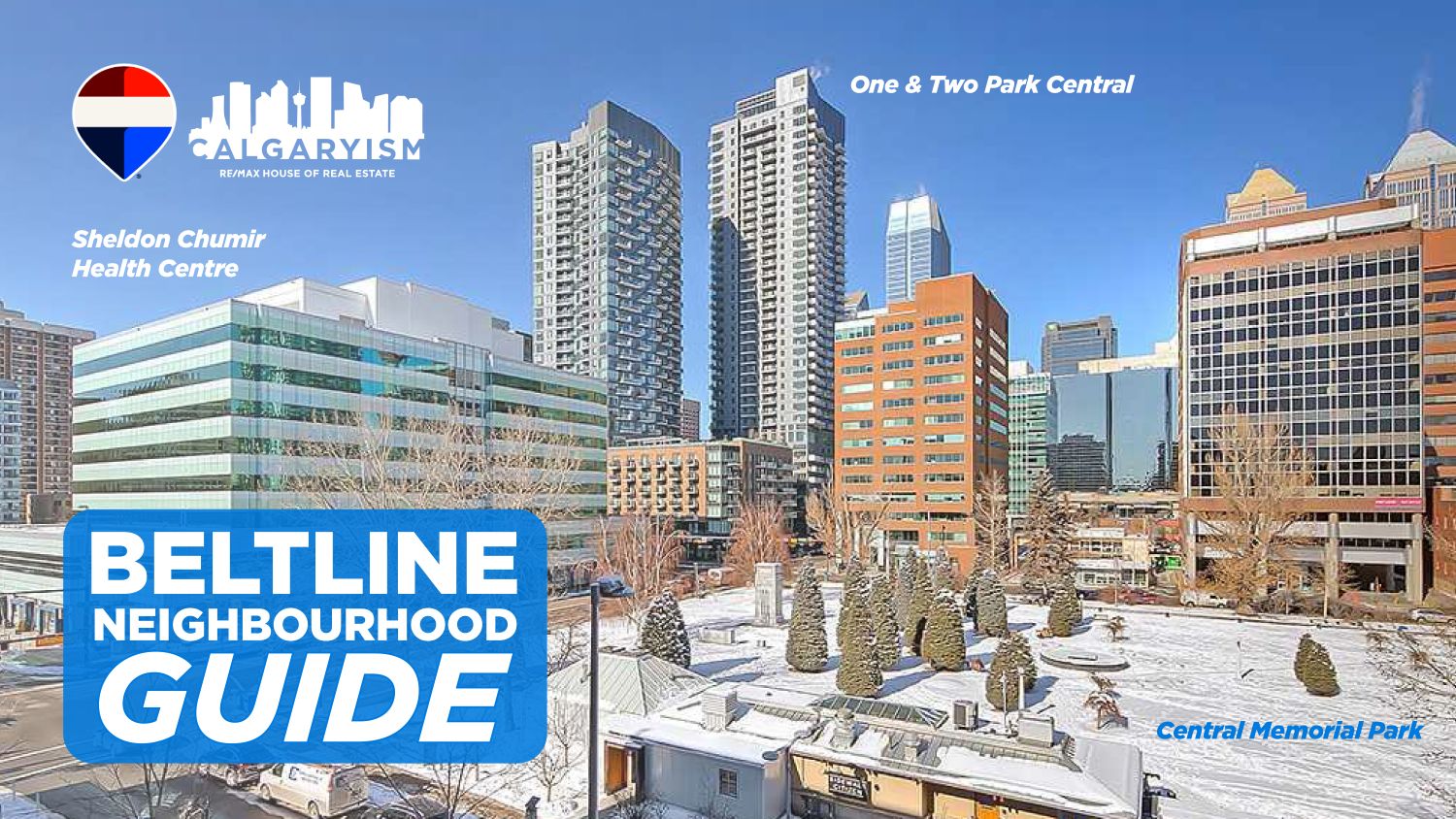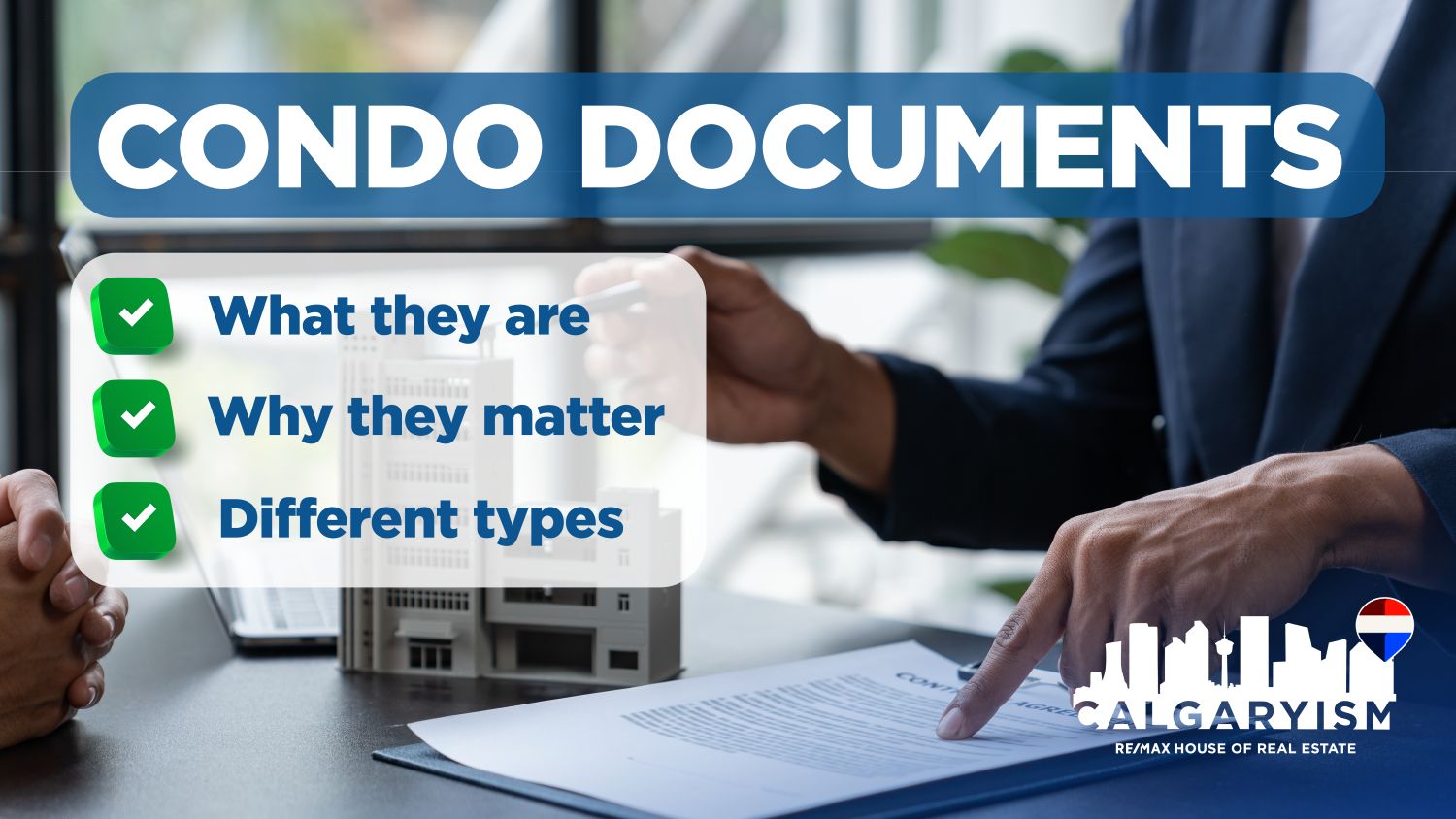Main Content
Buying a Condo: 21-Step Guide for Condominium Buyers

Condos are becoming an increasingly popular form of housing, particularly as affordability concerns become front and centre for many homebuyers who find themselves on a strict budget. As one of the most affordable types of home ownership opportunities, when buying a condo, you’ll see that they come in all shapes, sizes and price points, and are also found in varying locations ranging from the deep suburbs to the downtown core – in most Canadian cities, anyways.
And with condo living, there come several obvious benefits such as a lock-and-leave lifestyle, minimal maintenance, and improved security, to name a few. They are less expensive to buy than single-family homes, and offer similar tax benefits to owning a house. Many condominiums are located near parks, amenities, and public transportation corridors, also making daily life convenient.
But many ask, how exactly are you supposed to go about buying a condo? What factors should you be aware of when proceeding forward with a condominium purchase, and what steps are there to take?
Whether you’re a first-time home buyer or well-versed in property transactions, it’s crucial you get only the best advice when buying a condominium in your local residential market so that you can make the best, most informed decisions. With that in mind, here are several tips to condo buying with more expert guidance on what to expect every step of the way.
Condo Buying: Where to Start

#1 – Check Your Credit Score
Good credit is perhaps the most important thing when first considering a condo purchase. If your credit score is below 660 in Canada [1], then your score may not be in “good standing,” according to TD Bank. However, anything is possible; it’s not time to fret, as credit scores of 620 or higher often qualify for a conventional mortgage for a condominium [2].
Not to worry, as there are several steps you can take to improve your score. Those include using less than 30% of your allocated credit, making sure any outstanding bills are paid, and ensuring your monthly payments are made on time [3]. Checking your credit score will help determine if you need to put your condominium purchasing aspirations on hold for the time being.
#2 – Hire a Real Estate Agent
First and foremost, hiring an experienced real estate agent who knows your local condo market in and out is a great place to start. A knowledgeable agent can help you search for the right condo that matches your preferences and requirements, and already be familiar with what potential areas and/or buildings may fit your wants and needs. They will likely put you on a listing search notification, which sends you a list of condos on the market that fit your desired criteria.
The right real estate agent will presumably also protect your best interests and help you make informed decisions while taking care of all the details throughout the buying process. They shouldn’t only facilitate your condo search, but be your complete guide throughout the process, which is why hiring the right Realtor is such a crucial step.
#3 – Get Mortgage Pre-Approval
Once you’ve found the right real estate agent to help buy a condo, it is incredibly important to now determine your financial limits by getting pre-approved for a mortgage. This will not only ensure your time searching for a property on the market doesn’t go to waste by viewing units that are outside of your price point, it will also show your hired Realtor and sellers that you’re a serious buyer.
Knowing your budget helps you focus on properties that are of interest and within your financial reach. This is about making informed decisions about your finances and will give you an idea as to what price range to begin your search in. Learn more about the importance of mortgage pre-approval for homebuyers.
#4 – Acquire Third-Party Services
Once again, buying a condo involves acquiring third-party services to complete the transaction, which include a document review professional, mortgage specialists, unit inspection services, and real estate lawyer. Depending on the nature of your potential transaction, there may also be more third parties involved.
This is where leaning on your Realtor’s experience comes in handy. As an experienced real estate agent, they should have already made these connections with reliable third-party service providers long ago, and can provide you with references for said services. These providers will play an integral role in your condo purchase, and should also excel and be reputable in their particular field of work.
#5 – Be Prepared for Additional Costs
Talking about third-party services, all of these come at a price, of course. Take into account the extra costs for your condo document review, home inspections, moving fees, lawyer fees and closing costs. It’s important to know who pays for each of these expenses—typically, buyers pay for home inspections and lawyer fees, while some closing costs may be split or negotiated between buyer and seller.
Doing your due diligence with your finances to the very last detail will make your transaction as smooth as possible without any stressful surprises. If you’re unsure about what these additional costs with buying a condo might be, make sure to ask your real estate agent! Additional costs also include condo fees (more below).
Tips for Your Condo Search

#6 – Begin Your Condo Search
Now you’re off to the races! If you’re unsure exactly about the type of unit you want, it’s time to familiarize yourself with various options. Consider looking at several buildings in several areas to solidify the features you would like to have. From low rise to high rise to townhome styles and walk-ups, there are many floor plans, locations and construction dates for you to consider.
Condos typically offer shared amenities such as gyms, pools, and common areas, as well as maintenance responsibilities that are handled by the homeowners association (HOA). It is important to remember that purchasing a condominium means you’re essentially buying a share of the condo board and/or corporation, and with that ownership comes HOA fees that can impact long-term budgeting. Each condo also has fees to consider; some buildings will be much more expensive per square foot than others, another consideration you’ll want to make (more below).
#7 – Be Aware of Condo Fees
Unlike purchasing a single-family home, buying an apartment comes with its own set of rules, responsibilities, and costs. One of the most important things to understand is condo fees, also known as monthly maintenance fees. These fees are paid by all owners and go toward the upkeep of the building, repairs, and shared amenities like pools, fitness rooms, and other common areas.
Depending on your building, these fees can range from $0.70 to $1 per square foot; hence, if you own a luxury condo and your fees are on the higher end of that scale, they can quickly add up. This makes it critically important to understand the budget implications of condo fees and how they match up to your long-term financial goals.
#8 – Make a List of Your Criteria
Do your best to create a “shortlist” of criteria when buying a condo. This list will likely include the number of bedrooms/bathrooms, square footage, and balcony size. Other smaller wants that may not be essential could range from central air-conditioning to heated underground parking to walkability or a modern fitness centre.
It’s essential to make a list of these wanted features, as sometimes the sparkly nature of show units and staged resale properties can make you forget about the essentials you want, like a den, for example, for an office space at home. If buying this condo is part of your short-term to medium-term living plans, then you’ll also want to think about its potential resale value several years into the future after you’ve moved into another property, an important consideration when listing your buyer criteria.
#9 – Consider the Condo Unit Exposure
Not many potential condo buyers think about a unit’s exposure, and what that means for their living experience. For example, if you’re buying in an older building without central air-conditioning or an A/C in the unit, having an east-facing window exposure means your apartment is going to warm up considerably during the morning hours. Alternatively, a west-facing apartment will warm up during the evening hours. A south exposure means you’ll have ample natural lighting throughout the winter, especially in places like Canada, while a north exposure means you may not get much sunlight at all.
Condo unit exposure can also be significantly impacted by future developments. If, for example, there’s a planned high-rise tower that blocks out your current sun exposure or views, your unit’s value could take a hit when it comes time to sell in the future, which brings us to our next condo buying tip.
#10 – Check for Nearby Planned Developments
If you’ve found a building and unit you like, make absolutely sure to check on your respective municipality’s development permit map and also do an online search to look for future projects in the area. While we can’t always predict what will happen in the future, developments in urban centres are often “on the radar,” so to speak, many years before they begin construction and are discoverable with a little bit of research.
If you find a future commercial or residential tower that will block the unit’s view, then that should give you a reason to consider buying it, or not. Views can contribute to the asking price of any apartment; therefore, blocking that view could mean taking a hit on the overall value of the unit. Just another very important consideration when it comes to resale potential.
#11 – Evaluate On-Floor & Storey Location
Two more points of resale potential include a condo unit’s position in the building. The best units are typically positioned away from the floor elevators and underground parkade doors. These doors are in constant use, and if you can hear every time they open and/or close, it could be a nuisance and affect your resale potential. Sometimes people are also quite loud when entering and leaving the elevator, another thing to consider when choosing the in-building location of your condo.
It’s also important to keep in mind the walking distance up to your floor because if the elevators are ever under repair, reserved for moving, or down due to power outages, you’ll be forced to walk! This may seem trivial, as most condo buildings have more than one elevator. But it really isn’t, especially if you live on the 20th floor and are coming home with eight bags of groceries.
#12 – Are Parking and Storage Included?
Real estate is always more valuable if there’s a place to park your car. So, having a parking stall is a must, and a storage unit is a huge bonus. Even if you don’t have a car, purchasing a titled parking stall with any unit is a necessity for resale value, while additional storage will make your life that much more organized.
Some buildings have titled parking stalls and storage units, while others only assign or rent these spaces. Owned stalls and storage units can increase your resale value and provide greater convenience compared to assigned or rented options. Make sure to determine what condominium parking is ideal for your lifestyle goals.
Visitor Parking and Guest Suite
Another major consideration is the availability of visitor parking. Are there designated ground-level or underground visitor parking stalls? What about a designated guest suite you can book in advance for family or friends visiting from out of town?
Think about how you will accommodate your loved ones when they come by for a visit. This may be more important for you if you plan on hosting people often.
#13 – Is the Building Security Acceptable?
A safe and secure condo adds peace of mind to its owners and maintains the value of the building for everyone. Find the answers to questions such as:
- What security features does the condo building in question have?
- Is there 24-hour, 7-day-a-week security in the lobby?
- Can lower floors take the elevator to higher floors using their key fobs?
- Where (if any) are security cameras located?
The lock-and-leave lifestyle is a huge benefit of living in a condominium in the first place. If your building doesn’t have the necessary security features, then what’s the point?
#14 – Carefully Examine the Common Spaces
With your Realtor, carefully examine the condition of the condo’s common areas such as elevators, lounges, fitness centres, rooftop patios, hallways, etc., which are shared by all residents. Do they show pride of ownership? Are they well-maintained? If not, why is that? Also, do the common spaces live up to your expectations? For example, if having an in-house fitness centre with enough equipment to suit your needs is essential, then many older buildings may not be the best fit.
Gain valuable insight into a building and how well it is maintained by evaluating these shared spaces. Don’t buy any condo without checking these areas of the building, because if the
Closing Your Condo Purchase

#15 – Get a Competitive Market Analysis
When you find the perfect unit, make sure you have your Realtor provide information on sales history, comparable sales in other similar buildings, general area activity and more. If you don’t understand how these things can affect you now or in the future, ask your real estate agent to elaborate.
Essentially, a CMA will ensure that whichever offer you make reflects the actual market price of the unit. In many instances, sellers will inflate their prices above market value, hoping that an unknowing buyer bites. But with an experienced Realtor on your side, this should never happen.
#16 – Make an Offer to Buy the Apartment
Once you’ve found the condo that checks all your boxes, it’s time to make a formal offer to purchase. Your real estate agent will help you determine a fair offer price based on comparable sales, current market conditions, and the unit’s unique features. It’s common to include conditions in your offer, such as financing approval, satisfactory inspection, and review of condo documents.
Once the offer is submitted, the seller may accept, reject, or counter your proposal. Negotiations may go back and forth a few times before both parties reach an agreement. When the offer is accepted, all the agreed-upon terms and conditions move the deal forward toward a successful closing.
#17 – Get a Condo Document Review
The most important step when buying an apartment is acquiring a professional condominium document review. Your Realtor, if doing their job right, will make this a condition of the sale. Make sure to ask them important questions like:
- How many renters are in the building?
- How much are the condo fees per square footage, and what do they include?
- What is the health and size of the condo’s reserve funds, and how are they managed?
- What is the role of the property manager in maintaining the building and enforcing rules?
- What is the developers’ history with condos?
- Has there been any special assessments in the past, and if so, what for?
You can never leave any detail undiscovered when considering a condo purchase. Remember that a condo document review will cost you anywhere from $400 to $800 or more depending on the details.
No Document Review? No Deal!
Talk about a red flag! No matter what, do not buy a condo without a condominium document review condition. This doc review is paramount for your security and to make sure you are buying into a good, well-run building.
#18 – Get a Professional Condo Inspection
Another condition of your sale transaction should be a condo inspection, another must when you’re ready to buy a condo. Hiring a qualified home inspector ensures that both your unit and the building’s amenities are in good condition. The inspector will carefully check the condominium for any signs of damage, needed repairs, or wear and tear—looking at everything from plumbing and electrical systems to heating and cooling. They’ll also assess the common areas, such as the lobby, hallways, and shared amenities, to make sure they’re well-maintained and reflect pride of ownership.
Knowing about any potential issues before you purchase allows you to budget for repairs and negotiate with the seller on the price if needed. This step gives you peace of mind and helps you make a confident, informed decision about your new home.
#19 – Insurance and Risk Management
Protecting your investment is a key part of condominium ownership, and that starts with the right insurance. Owners should work with an insurance company that understands the unique needs of condominium living. Your personal insurance typically covers your unit, belongings, and liability for accidents or injuries inside your space. In Canada, your mortgage lender won’t release your funds to purchase a condo until proof of insurance is provided, making it an essential part of the process.
When acquiring insurance, it is wise to determine exactly what is – and is not – included. Ask about water damage, fire damage, and other items of the sort. In addition, review the condo board’s insurance policy to ensure the building and common areas are adequately protected. By understanding your insurance needs and managing potential risks, you can have confidence in your purchase, knowing your property and investment are secure.
#20 – Pre-Closing Preparations
Once your Realtor submits an offer and it is accepted, there are several vital steps to complete before closing day. This is the time to finalize your mortgage, review and sign all necessary documents, and satisfy any outstanding conditions in your purchase agreement.
One crucial document is the condo’s status certificate, which provides details about the condominium corporation’s financial health, reserve fund, and any ongoing legal or maintenance issues. Your real estate agent and lawyer will help you navigate this process, ensuring everything is in order. Don’t forget to budget for closing costs, which can include legal fees, land transfer taxes, adjustments for property taxes, and prepaid condo fees. Staying organized and working closely with your team will help ensure a smooth transition into your new home.
#21 – Closing the Deal
Closing day marks the final step in your condo buying journey. On this day, you’ll sign the last of the paperwork, pay the remaining balance of the purchase price, and officially take ownership of your new condo. Be sure to review and acquire all closing documents carefully, including the deed, mortgage agreement, and transfer of title. You’ll also need to provide proof of insurance and pay any outstanding condo fees, property taxes, and other related expenses.
Once the deal is closed, you’ll gain access to the building’s amenities—like the pool, gym, and parking—and become part of a community of condo owners who share responsibility for the common areas. By understanding what to expect on closing day, you can settle into your new home with confidence and start enjoying all the benefits of apartment living.
Ask a Condo Expert for Guidance
If you haven’t already, make sure to hire an experienced, condominium-savvy REALTOR® to walk you through these 21 steps. This will help you get great value, make an informed decision, and find a unit that fits your wants, needs and lifestyle best!
As highly experienced REMAX real estate agents and condominium specialists in Calgary, we would love to be your complete guide and put our connections, experience and expertise to work for you!
Call us anytime at 403-370-4180 or contact us online for a quick, if not immediate response. We are looking forward to helping you accomplish your real estate goals!
SOURCES:
1 – https://www.td.com/ca/en/personal-banking/advice/borrowing/what-is-a-good-credit-score
2 – https://www.brookfieldresidential.com/news-and-blog/complete-guide-to-credit-scores
3 – https://www.equifax.ca/personal/education/credit-score/articles/-/learn/how-to-improve-your-credit-scores/
Required fields are marked*
- Airdrie
- Alberta
- Arts and Culture
- Blog
- Buying Tips
- Calgary
- Calgary Activities and Events
- Calgary Communities
- Calgary Condo Guide
- Calgary Infill Homes
- Calgary Luxury Homes
- Calgary New Condo Guide
- Calgary New Homes
- Calgary Real Estate Statistics
- Calgary Restaurants
- Calgary Townhomes
- Canada
- Condo Building Review
- Condos in Calgary
- Featured Blog Posts
- Featured Blogs
- First Time Home Buyers Guide
- Listings
- Moving to Calgary
- New Condo Projects
- Oil and Gas
- Selling Tips
- Slider
- Testimonials
- The Best in Calgary
- Uncategorized
- Video Testimonials
- Contact Us
- Search MLS®
- Sellers’ Guide
- Buyers’ Guide
- About Cody & Jordan
- Blog
- Testimonials
- Downtown Calgary
- SW Calgary
- SE Calgary
- NE Calgary
- NW Calgary
- Calgary Condos
- Calgary Townhomes
- Calgary Infills
- Calgary Luxury Homes
- New Calgary Homes
- New Calgary Condos
- Acreages for Sale
- Bungalows for Sale
- Duplexes for Sale




